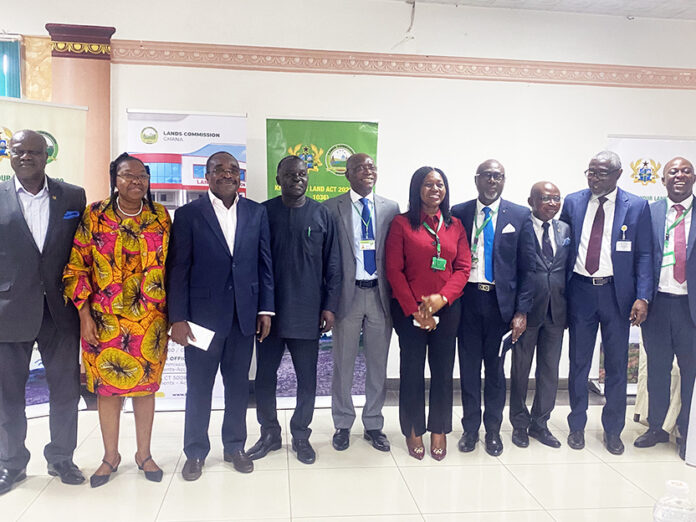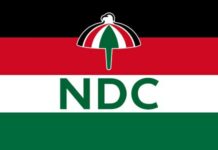
The Lands Commission is in the process of transforming its operations for effective land administration services and to deal with corruption. The Commission has commenced processes to engage experts in the private sector in a five-year land reform project estimated to cost US$85 million. The project will be funded by the private sector, yet to be selected, and paid later by the Commission with its internally generated funds.
The components of the projects are mapping and surveying, digital transformation, decentralisation of services, systematic titling, capacity building, and creating a national spatial data infrastructure. The above was disclosed on Monday, August 21, 2023, at a media briefing by the Lands Commission in Accra.
UN REPORT
The land reform project, whose preparation is intensively progressing, has been met with a survey by the United Nations Office of Drugs and Crime (UNODC), which puts the Lands Commission as the most corrupt public institution in Ghana in 2021.
The study showed that officials of the Lands Commission take cash bribes, with an average bribe size of GH¢1,669. The judicial system—prosecutors, judges, and magistrates—followed the Lands Commission with GH¢1,204.
NO REBUTTAL
The Lands Commission, responding to the report, indicated it would not rebut it but take a cue from it as part of its transformational plan.
The Deputy Minister for Lands and Natural Resources, Benito Owusu Bio, addressing journalists at the same briefing, opined that corruption could not be justified.
“We accept the report, and we will work to ensure that next year the Lands Commission will not be on the list,” he assured.
He indicated that the staff that engages in the corrupt practices may not be aware of the sanctions proscribed by Act 1036, thus their involvement.
He tasked the Commission to rigorously rid itself of the activities of middlemen, commonly referred to as ‘goro boys’.
He commended the Ministry of Foreign Affairs for moving to deal with ‘goro boys’, adding that the Ministry of Lands and Natural Resources would follow suit.
INTERNAL VIGILANCE
The Chairman of the Board of Directors of the Lands Commission, Alex Quaynor, remarked that the Commission was “mindful of its image.”
According to him, the stamp fraud was detected through internal vigilance, adding that “no one came to complain to us.”
However, he called for the public’s support in the fight against malfeasance in the land administration services.
He indicated that though the ‘goro boys’ have collaborators who are staff, the public should desist from engaging them in order not to be duped and educated further that their staff are with name tags.
WAY FORWARD
Presenting the activities of the Lands Commission geared towards dealing with delays, originality of titles, and corruption, the Executive Secretary, Surveyor James Dadson, outlined some four measures.
He mentioned that the Commission was digitalising its processes and indicated that 10% of its data had so far been scanned and digitalised.
He also mentioned modernized records management, which makes it easier for files to be identified while being kept safely.
There is also the delivery and compliance dashboard that allows for land title processes to be monitored by superiors and queries raised if any delay was detected.
He mentioned that the online operation enables the public to access the services of the Commission and make payments as well, thereby reducing human contact, which breeds corruption.
However, the Lands Commission faces several challenges, including multiple sales of lands, the interpretation of land-related judgments, inadequate tools and equipment, and staff remuneration.
Meanwhile, the Commission is looking to install advanced security gadgets at its offices to restrict access to non-staff. This is part of the measures to deal with the ‘goro boys’ canker.








